Reports have come in from a whistleblower regarding election malfeasance in Carbon County, Montana. The whistleblower details challenges to voter eligibility that went ignored, poll watchers that were intimidated and sequestered in tabulation areas, ballots that arrived at 8pm but were not moved to the tabulation room until after midnight, and flashing lights indicating connectivity on tabulation machines that were idle.
Carbon County, located in south-central Montana, includes the cities of Bridger, Fromberg, Joliet, Roberts and Belfry with the county seat in Red Lodge.
Carbon County has documented issues with voter registrations and problem votes from the 2020 election. I previously attended an election integrity rally at the state capitol in Helena. At the rally, I was given a copy of the Montana Election Integrity Project’s 2020 Canvass Report, with initial findings on ballot discrepancies in several Montana counties.
Here are the figures from that report, for Carbon County.
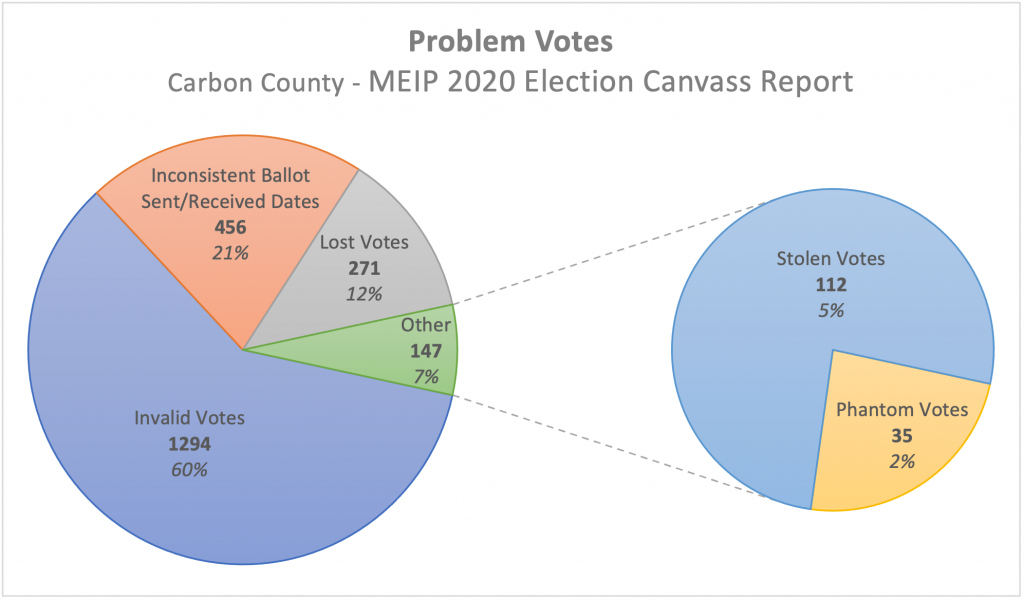
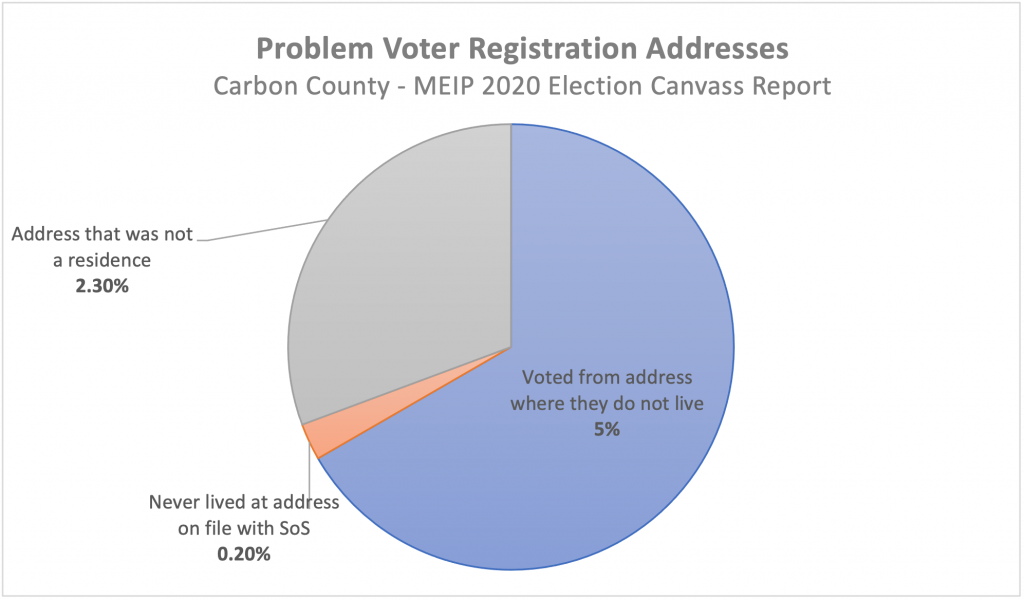
The whistleblower stated that for the 2022 General Election, there were 284 challenges to electors/voters in Carbon County, all delivered between one week to 3 days before the election and yet no investigation was conducted by the Election Administrator into any of these challenges.
I sent a follow-up inquiry to the Elections office of Carbon County regarding challenges of electors and have not received a response.
The Elections Administrator in Carbon County is a woman named Crystal Roascio. What we know about Roascio comes to us from an article in the Helena Independent Record, dated May of this year:
“Carbon county’s election administrator, Crystal Roascio, wrote in an email Wednesday that she has been in contact with local law enforcement following allegations by right-wing activists that the machines the county uses to process ballots are compromised.” The article stated that she took this action not out of concern for the voting process, but out of fear of the supposed threats of these activists.
Given Roascio’s over-the-top response to concerned citizens who found broken warranty seals on the county’s ES&S manufactured DS200 ballot tabulators, it seems safe to say that Roascio clearly has a problem with citizens asking questions about their election process.
Poll Watchers Barred From Observing
But the corruption does not end there. The next issue of note is to do with the rights of poll watchers. The Federal Elections Assistance Commission (EAC) explains the role of a poll watcher stating, “The role of a poll watcher is to observe and monitor the election, without violating voter privacy or disrupting the election. Poll watchers are different from challengers, though in some jurisdictions, poll watchers may challenge the eligibility of voters or the validity of ballots.”
The whistleblower stated that in Carbon County on election night, “Poll watchers were unable to freely ask questions, inspect logs and verify counts, nor able to walk to the various locations within the building to watch signature verifications, adjudication of ballots, etc. In fact, all absentee ballots and adjudicated ballots were done in separate closed off rooms within the clerk’s office. The adjudication room in particular had no windows and the door remained shut during vote tabulation.”
The Federal Office of Labor Management Standards explains the rights of poll watchers/observers in the following manner: “The role of an observer is to observe the election process and, as appropriate, ask procedural questions of election officials, challenge the eligibility of individual voters or the manner in which votes are counted, and lodge protests with election officials.” As this shows, by federal standards, poll watchers are allowed to ask questions. It is a poll watcher’s right and duty to do so. So why was this whistleblower and others not allowed to ask questions about the elections process in Carbon County?
Security Cameras Off, Overlayed With Disney Film
The whistleblower details additional strange events that took place during election day in Carbon County. Elections staff were playing Disney movies, with the volume turned up loudly, on displays normally used to show footage from the building’s four security cameras. According to emails obtained from a FOIA request, on October 11th, Carbon County Administrative Officer Angela Newell requested the cameras be turned off for the entire day during voting and even during tabulation, leaving no video record of the tabulation process.
When county staff were told by poll watchers that the movies were loud and distracting, and were asked to turn them off, staff refused to do so. The movies were being played on screens in front of the ballot processing room, the location where all ballots would be processed by Carbon County clerk staff prior to being transferred to the tabulator room for counting. The fact that these movies were being played on the security camera monitoring screens, that they were loud and distracting, and that staff would not turn them off, suggests a sinister motive.
The whistleblower told Western Montana News that, “The screen that normally shows the building’s four security cameras, was being used for the Disney movies. Thus, the Disney movie obscured the fact that the cameras were turned to ‘privacy screen’ which blacks out the majority of the field of vision and on the monitor that shows the camera footage, it would have been evident that the video footage was not being captured due to the ‘privacy screen’ being put in place. The movies were kept playing until the building was closed at 3am on November 9th. Playing the movie was an attempt to not only hide the fact that video footage was not being captured, but to also create noise to cover up conversations, possibly noise from copiers and other noise that was occurring in the processing room.”
Ballot Tabulation and Adjudication Areas Off-Limits to Poll Watchers
Another strange incident that occurred during the Election Day process in Carbon County, was that the Tabulator Room was made absolutely off-limits to poll watchers by Elections Administrator Crystal Roascio, who even warned poll workers that if they entered the Tabulator Room, they would be sequestered for the entire evening until ballot tabulation was completed. Nor were they allowed into the Ballot Processing Room. In fact, it seems that Carbon County wanted to keep its poll watchers as far from the ballots and equipment as humanly possible.
The Adjudication Room was also off-limits. The whistleblower stated that, “In fact, all absentee ballots and adjudicated ballots were done in separate closed-off rooms within the clerk’s office. The adjudication room in particular had no windows and the door remained shut during vote tabulation.”
Despite Elections Administrator Crystal Roascio keeping such a tight grip on the Tabulator Room, observers noticed election judges entering and leaving at their own pleasure, and even leaving the door open when they chose to, at their leisure. “Rules for thee, not for me,” seems to be the rule of the day at the elections office.
And despite election officials claiming that tabulation machines are not connected to the internet, observers witnessed an internet-connected computer turned on in the processing room at the time of vote processing in Carbon County.
In addition, any poll workers watching in the Tabulation Room (who would have to be sequestered there for the night, if they somehow managed to get in despite coercion from election officials not to), would be subject to harassment by the Election Judges and by Election Administrator Crystal Roascio, as the whistleblower detailed in their affidavit. In addition, poll watchers were told to stay well away from the ballots and were unable to check signatures or serial numbers. In effect, observers were treated as a nuisance to the entire elections process in Carbon County.
Flashing Lights on Tabulators While Idle
And then there is the issue of the tabulation machines themselves, which elections officials claim have no capability to access the Internet. However, according to what I learned at the election integrity rally in Helena, many tabulation machines originally came with Bluetooth connectivity capability which we have no way of knowing whether or not is disabled.
The whistleblower added concerning the machines connectivity, “I focused on what the ES&S DS 200 tabulator #2 was doing because I saw flashes coming from it. It caught my attention. Through the cracks in the case where the USB sticks are placed, I saw four, fast, red flashes (like counting to 4 as fast as you could. It was so fast it appeared to be three flashes, but it was four flashes). The flashes were not random.”
The whistleblower explained, “At first I thought it was a link light, which is a light that goes on when a machine’s trying to access the Internet through an ethernet connection. I couldn’t tell right away what was flashing, but due to my experience with the machines, from 4 separate demos, and now a live tabulation, I knew the area where the flashes emanated from was where the USB stick is inserted. The flashes were occurring when the machine was idle.”
4-Hour Ballot Delays
The whistleblower details several strange occurrences that happened with the tabulation machines, and also described how 300 loose ballots were brought in on USPS mail trays without being in sealed in affirmation envelopes.
The whistleblower noted additional strange discrepancies with ballot processing on the second round of delivered ballots stating, “The ballots from the precincts (when polls closed) were brought into the processing room between 8-9:30pm. These are ballots with voters already verified that are ready to go into the tabulator room, but they are not brought into the Tabulator Room until after 12:30am in the morning, with approximately 300 final ballots not arriving until approximately 2am (approximately 45 minutes after one of the two tabulator machines was shut down for the night and the final tapes rolled and read by the Election Administrator.)”
It is appalling that this is the elections process that was allowed to take place in Carbon County. It shows the need for elections process reform, the need for investigation, and the need for more transparency in the elections process in Carbon County and in Montana as a whole.
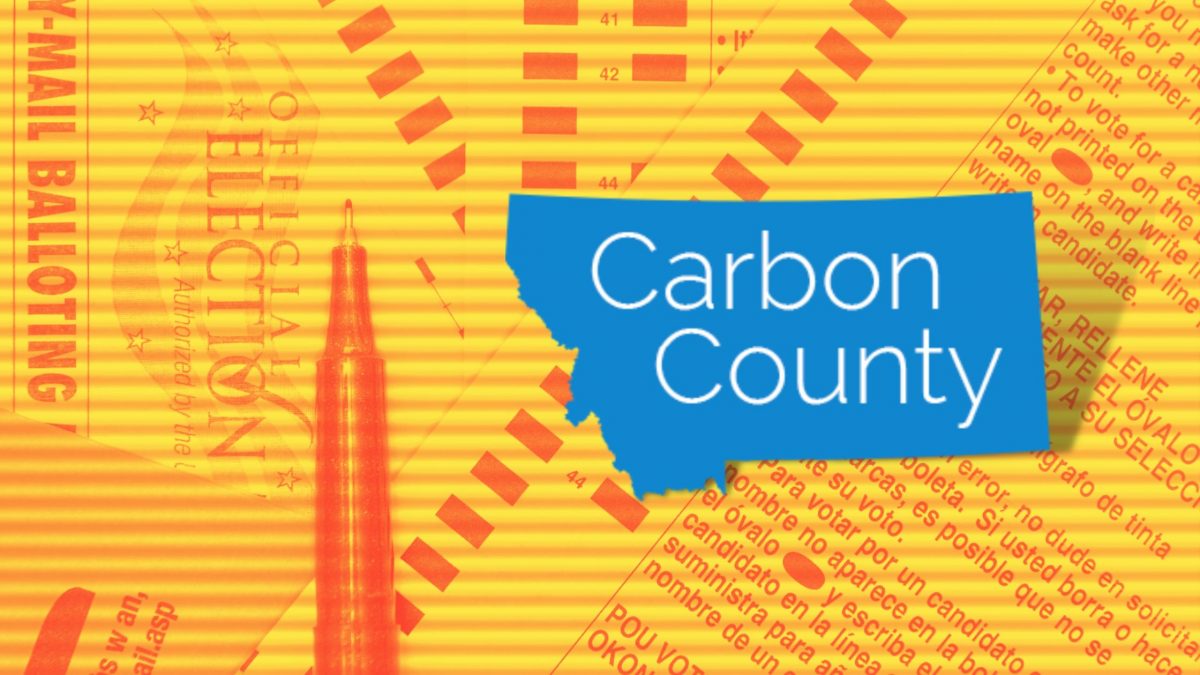
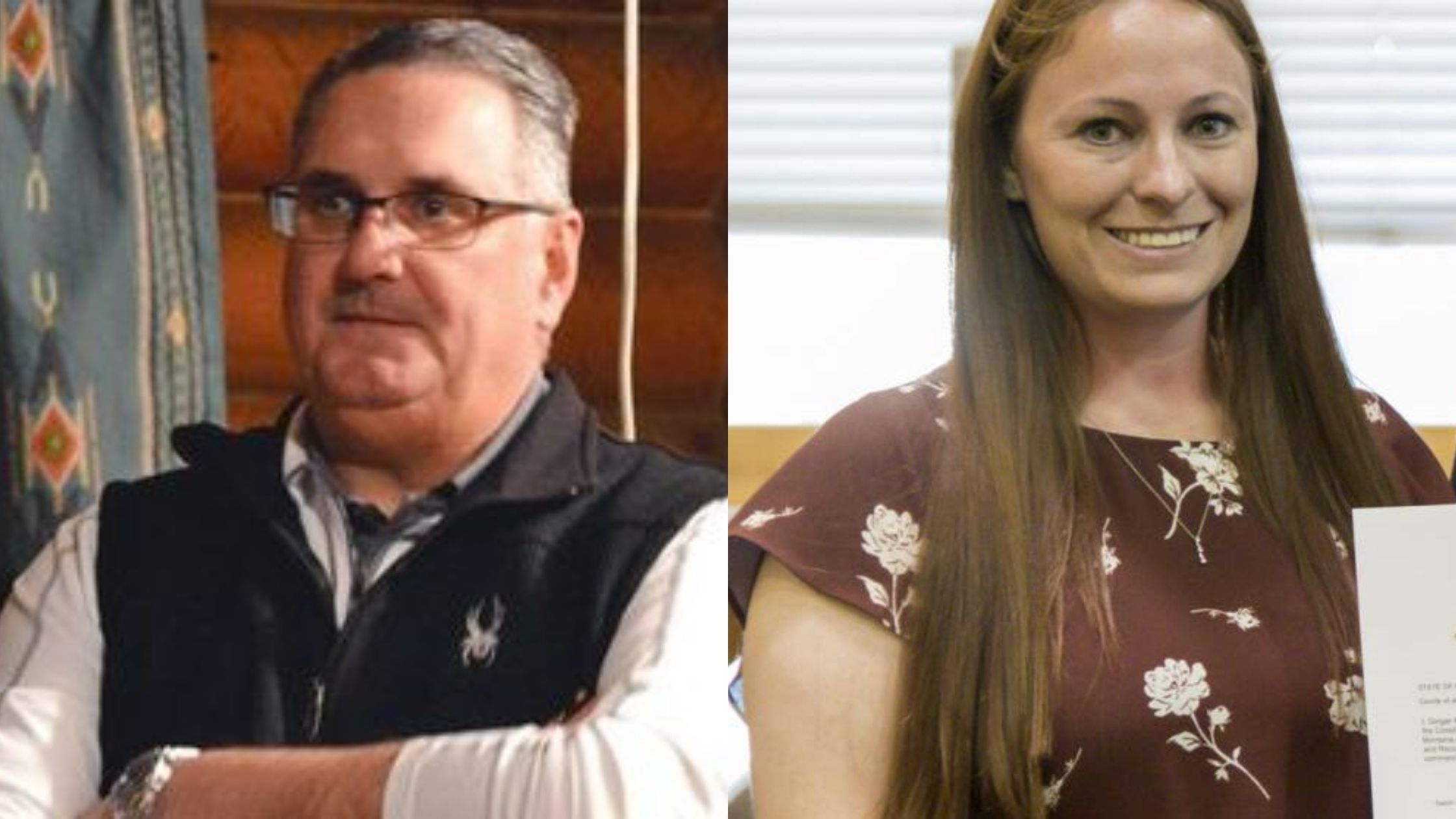
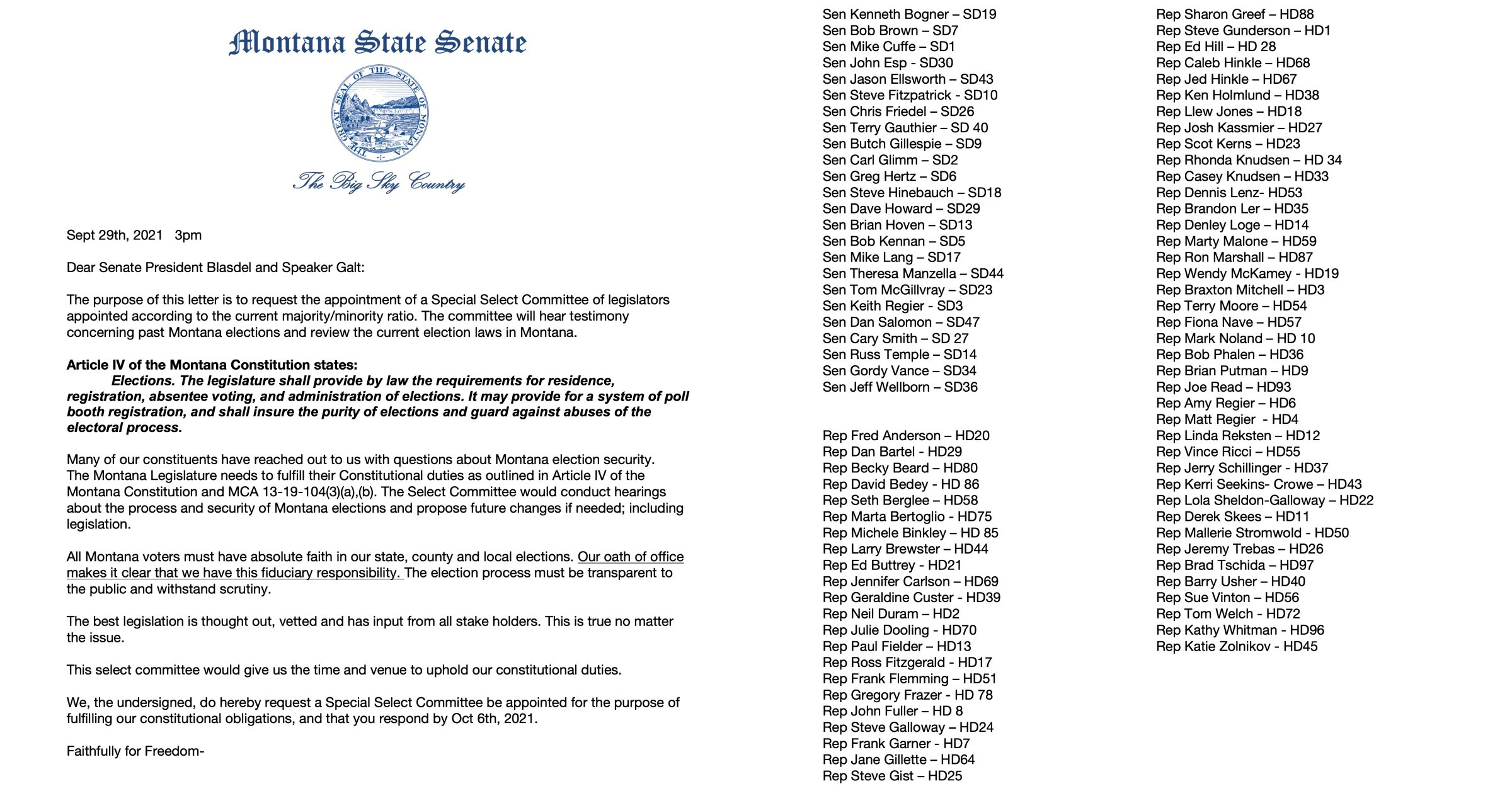
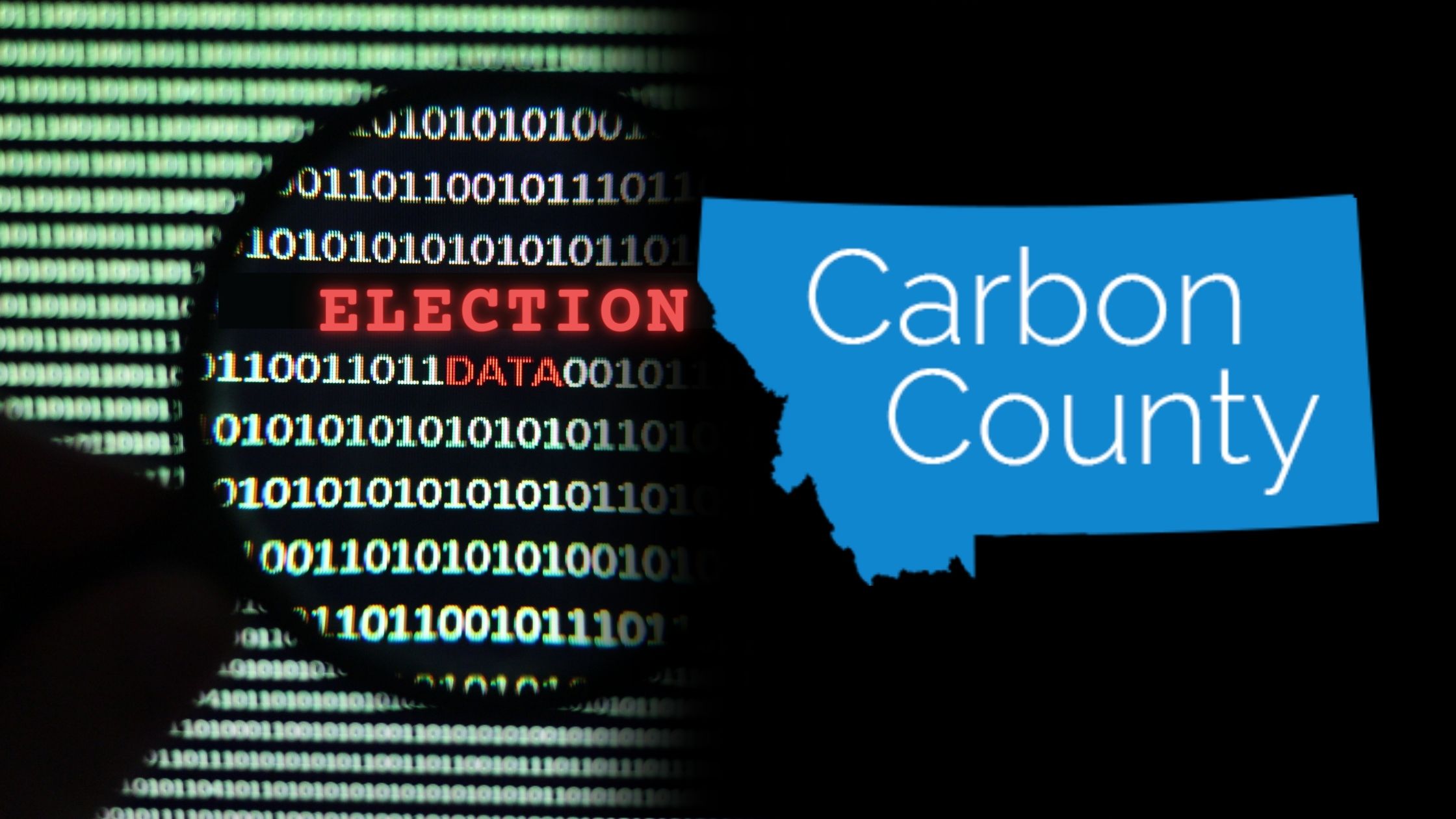
Great work!
Now to post & share to everyone you know! Till the drive by media can no longer ignore.
Thank you for sharing! ?
Great work on this report, Leslie!